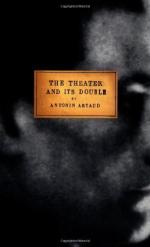|
This section contains 345 words (approx. 1 page at 400 words per page) |

|
XII. An Affective Athleticism Summary and Analysis
Artaud starts by comparing the actor with the physical athlete, concluding that they are each other's double because they function in a similar way. The main difference between these two types of athlete is that physical athletes rely on their bodily functions to support their body, whereas actors use theirs to control their emotions and affections. For instance, the physical athlete uses his body to support his breathing whereas the actor breathes to support and control his body.
Using breathing as an example, Artaud asserts that emotions are essentially physical and that passion, which is at the heart of theater, is material and thus subject to the fluctuations of the latter. In order to accomplish his task, the actor must then control his breathing and become fully aware that its tempo is the key to...
(read more from the XII. An Affective Athleticism Summary)
|
This section contains 345 words (approx. 1 page at 400 words per page) |

|




